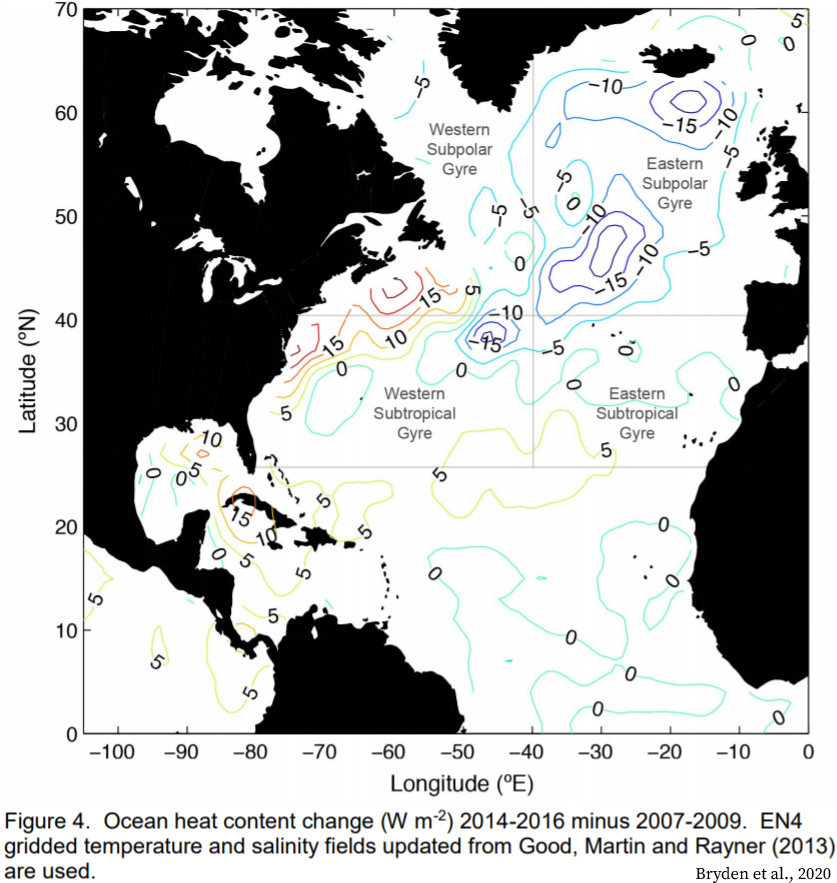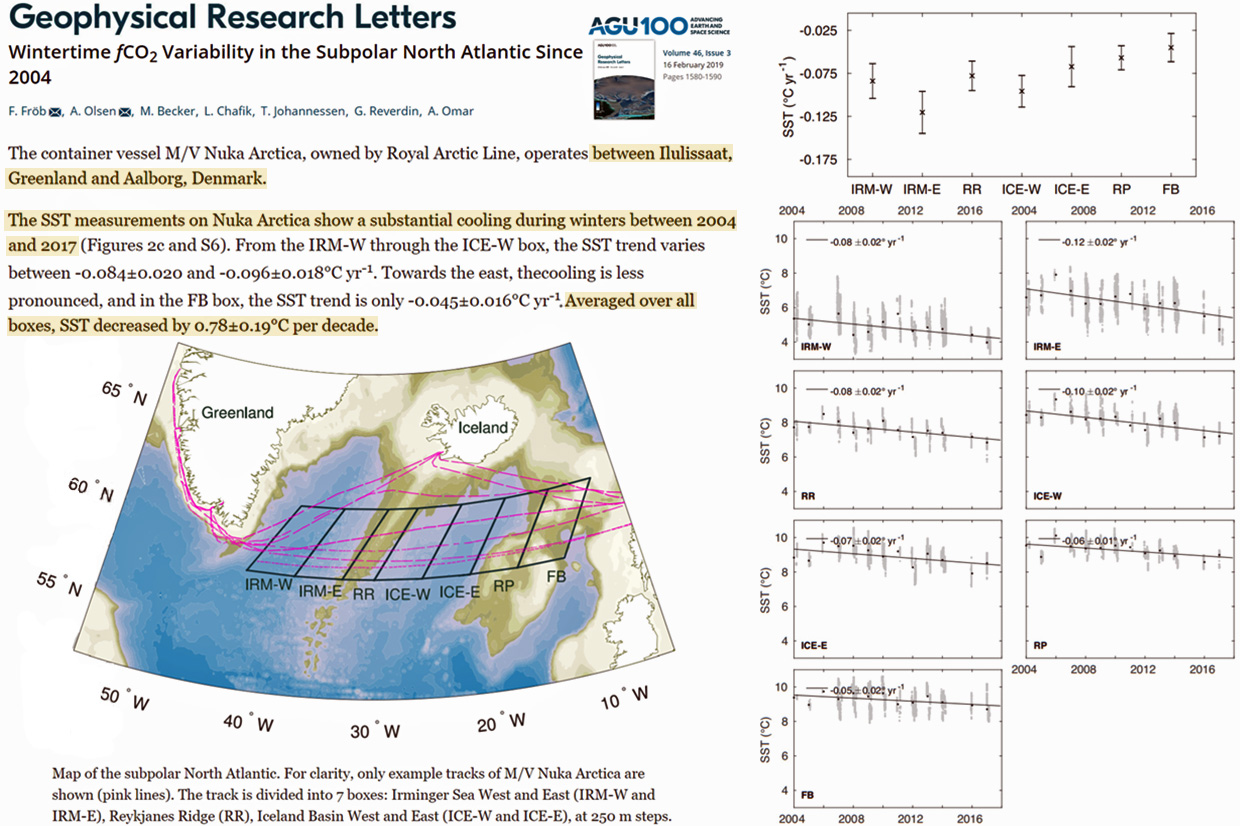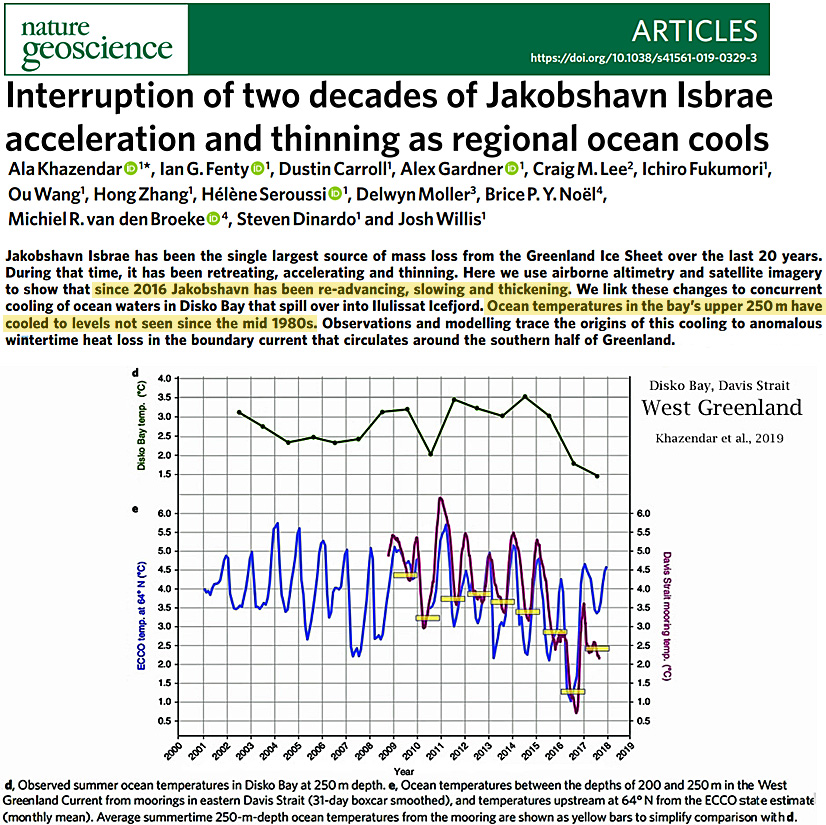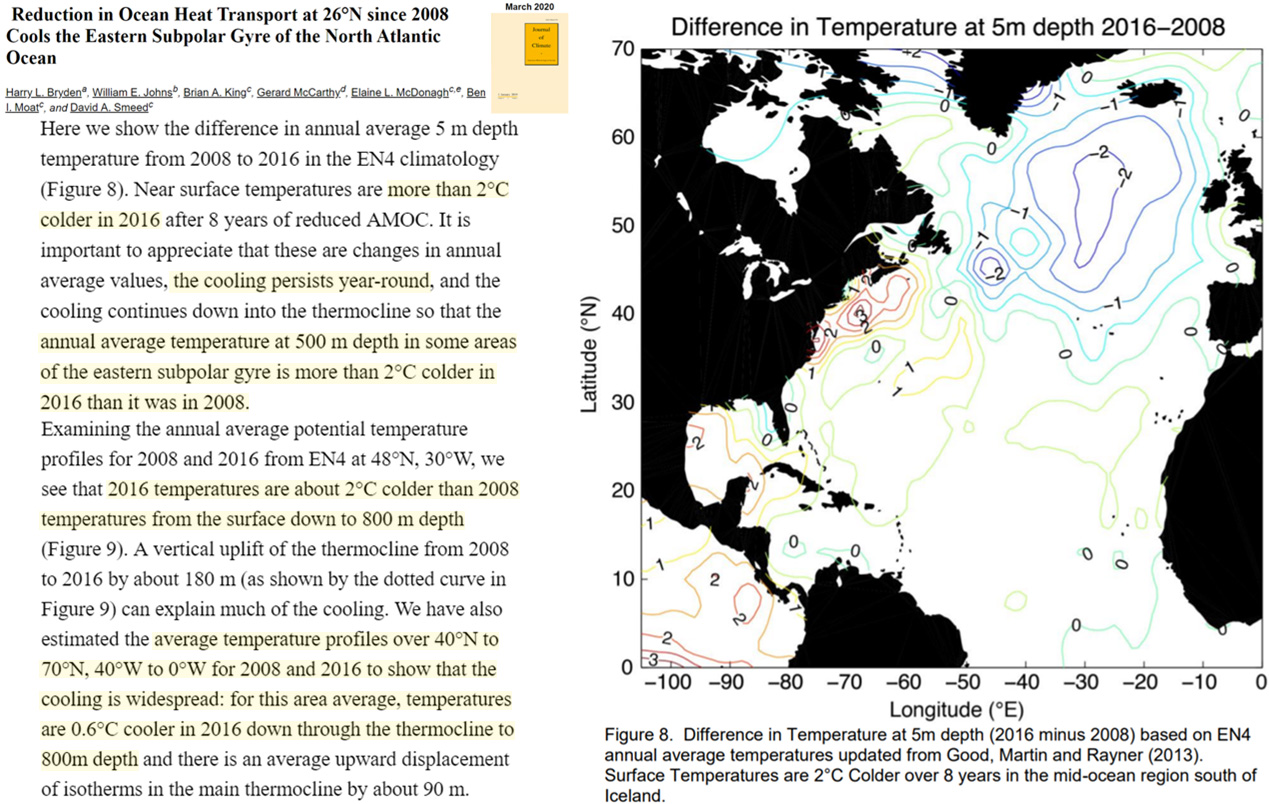From 2008 to 2016 a widespread cooling ranging from 0.6°C to more than 2.0°C has chilled effectively the entire oceanic region from E. Canada to N. Iceland to S. Europe. The cooling persists year-round and extends from the surface down to depths of 800 m.

Image Source: Bryden et al., 2020
A year ago scientists revealed a large swath of the North Atlantic surface had cooled at a rate of -0.78°C per decade between 2004 and 2017 (Fröb et al., 2019).

Image Source: Fröb et al., 2019
The cooling has recently sprawled into the Arctic regions, as the upper ocean waters in Disko Bay (West Greenland) have just been hit with a ~2°C cooling since 2014 (Khazendar et al., 2019).

Image Source: Khazendar et al., 2019
A new study (Bryden et al., 2020) suggests the magnitude, rapidity, and extent of this cooling may have been underestimated.
A cooling of “more than 2°C” in just 8 years (2008-2016) has been reported for nearly the entire ocean region south of Iceland.
The cooling persists year-round and extends from the “surface down to 800 m depth”.
From 40°N to 70°N, and from 40°W to 0°W, average temperatures have plunged 0.6°C from 2008 to 2016 – also to depths of 800 m.
To put these thermal changes into perspective, consider it took the global oceans 55 years (1955-2010) to warm 0.18°C (0.27 W/m²) in the 700 m layer (Levitus et al., 2012).
It is unknown to what extent the cooling will permeate other regions of the ocean. Nor is it known how long the cooling will persist. Or worsen.






There is a book telling this story is not new:
https://archive.org/details/glaciervariation00ahlm/page/n5/mode/2up
[…] über New Study: A Massive Cooling Of 2°C In 8 Years (2008-2016) Has Jolted Large Regions Of The North At… […]
Great work Kenneth!
Continue to billystick the Earth-ending Doomers with facts, data, statistics, research and real scientific findings.
I’m sure all this cooling is caused by Man-Made Global Warming. It’s just a different kind of warming.
Are there any theories/observations as to what is causing this cooling?
[…] by K. Richard, February 14, 2020 in NoTricksZone […]
[…] Eiswachstum zu verschleiern… Brutale arktische Kälte überzieht große Teile Nordamerikas. Nordatlantik kühlt stark […]
Temperature trends are unpredictable because we don’t know the nature of the log/coal we’re standing on and the fire it’s sitting on.
You will enjoy:
https://phzoe.wordpress.com/2020/02/25/deducing-geothermal/
Great work! Thanks for the truth.
Thank you.
[…] Fonte: No Tricks Zone […]
Tremendous news and a tribute to your practise of science and persistence. Thanks.
[…] https://notrickszone.com/2020/02/24/new-study-a-massive-cooling-of-2c-in-8-years-2008-2016-has-jolte… […]
[…] New Study: A Massive Cooling Of 2°C In 8 Years (2008-2016) Has Jolted Large Regions Of The North At… […]
[…] https://notrickszone.com/2020/02/24/new-study-a-massive-cooling-of-2c-in-8-years-2008-2016-has-jolte… […]
[…] New Study: A Massive Cooling Of 2°C In 8 Years (2008-2016) Has Jolted Large Regions Of The North At… […]